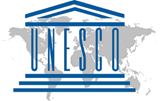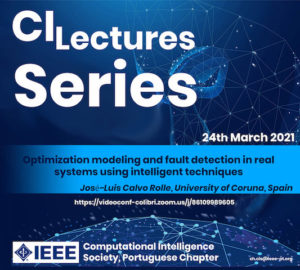De: Gasper.Hrastelj@gov.si
Data: 27 de março de 2021, 13:31:11 WET
Assunto: International Research Centre on Artificial Intelligence under the auspices of UNESCO = IRCAI – official launch as a virtual conference
KIND REMINDERThe International Research Center on Artificial Intelligence under the auspices of UNESCO (IRCAI) will hold its official launch event on 29-30 March 2021.
IRCAI was established by the Government of the Republic of Slovenia and is located at the Jožef Stefan Institute in Ljubljana, Slovenia.
The event will be held online, with H. E. Ms Audrey Azoulay, Director-General of UNESCO and H.E. Mr. Borut Pahor, President of the Republic of Slovenia, participating as introductory speakers on March 29. The Minister of Education, Science and Sports of Republic Slovenia Simona Kustec and the Minister of Public Administration of the Republic of Slovenia Boštjan Koritnik will also participate. Experts and researchers from more than 60 countries, high representatives of the European Commission, representatives of embassies accredited in Slovenia and representatives of many other international organizations and last but not least many representatives of the world professional and research community will participate in this event online.The establishment of IRCAI was unanimously supported by all UNESCO Member States at the 40th session of the General Conference of UNESCO in November 2019. IRCAI was officially launched in October 2020 and is a new and the first Category 2 Center under the auspices of UNESCO, focusing directly on approaches to achieving United Nations Sustainable Development Goals through the use of artificial intelligence. The program of the event: https://ircai.org/launch-2021/ includes a look at Artificial Intelligence in terms of research, its impact, innovative funding mechanisms, ethical aspects and the reliability and bias of applications in relation to the SDGs.
Slovenia has made many important contributions to the development of Artificial Intelligence, from the early pioneers in the field to the implementation of large-scale AI systems. Researchers from the “Jozef Stefan” Institute have been contributing to these scientific advances for 40 years and will continue to do so in the future. Past and present achievements, not only in the field of AI, but also in areas of the natural sciences that touch on the sustainable goals of United Nations, provide the right environment for IRCAI to grow globally and connect scientific disciplines and diverse stakeholders to support the achievement of the goals of United Nations and establish a growth of scientific achievements and potentially new disciplines at these intersections.
The event, which will take place on the Zoom platform, will also be publicly available online at https://ircai.org/.
Please take the opportunity to still register and participate!!
Best wishes,
Gašper
GAŠPER HRASTELJ
Slovenska nacionalna komisija za UNESCO / Slovenian National Commission for UNESCO
Generalni sekretar / Secretary General
Ministrstvo za izobraževanje, znanost in šport / Ministry of Education, Science and Sport
Kotnikova 38, 1000 Ljubljana, Slovenija / Slovenia
(: +386 (0)1 478-4678 7: gasper.hrastelj@gov.si
Mobile: +386 41 785 468









